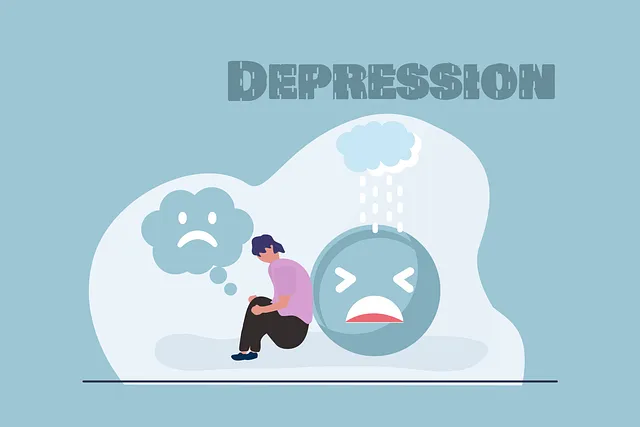Risk management is vital for ensuring patient safety and professional well-being in Longmont's dynamic mental health landscape, especially within Kaiser services. By identifying community hazards like limited service access, implementing tailored interventions through Community Outreach, and adopting comprehensive risk assessment frameworks, mental health professionals create resilient, supportive environments. Kaiser's proactive strategies, including crisis training, stress management education, and regular risk assessments, enhance their commitment to delivering top-tier care. Continuous monitoring using data analytics, along with training in stress management, cultural competency, and ethical navigation, is crucial for improving care delivery and ensuring high-quality mental health services in Longmont.
Mental health professionals face unique challenges, demanding robust risk management strategies. This article explores a structured approach to mitigating risks in clinical settings, focusing on Longmont, CO, and drawing insights from Kaiser’s safety protocols. We delve into identifying specific risks, developing a comprehensive assessment framework, and implementing proven strategies for continuous improvement. Learn how these steps can enhance patient safety and ensure effective mental health services in communities like Longmont, providing accessible resources for those seeking help at Kaiser and beyond.
- Understanding Risk Management in Mental Health Practices
- Identifying Potential Risks and Hazards in Longmont, CO
- Developing a Comprehensive Risk Assessment Framework
- Implementing Effective Safety Protocols at Kaiser
- Continuous Monitoring and Improvement Strategies for Mental Health Professionals
Understanding Risk Management in Mental Health Practices

Risk management in mental health practices is an essential component of ensuring patient safety and maintaining a healthy work environment for professionals. For mental health experts, navigating complex emotional landscapes with clients means understanding and mitigating potential risks effectively. This process involves identifying hazards, assessing vulnerabilities, and implementing strategies to prevent or minimize adverse outcomes. By adopting robust risk management techniques, practices in Longmont, and even those affiliated with Kaiser, can foster a culture of resilience and support, enabling both patients and professionals to thrive.
In this context, Inner Strength Development plays a pivotal role. Equipping clients with tools for positive thinking and fostering mental wellness is not just therapeutic; it empowers them to navigate challenges better. Similarly, mental health professionals can enhance their own well-being by adopting strategies that promote resilience against stress and burnout. Thus, integrating risk management into the fabric of mental health care ensures a holistic approach that benefits both patients and practitioners alike, creating a safer and more nurturing environment for all who seek help.
Identifying Potential Risks and Hazards in Longmont, CO

In Longmont, CO, identifying potential risks and hazards is a critical step in effective risk management planning for mental health professionals. The city’s unique landscape presents various challenges. For instance, the lack of readily accessible mental health services, especially outside major healthcare facilities like Kaiser, can create barriers for individuals seeking help. This is exacerbated by the bustling nature of the community, where busy schedules and limited resources may hinder proactive Mental Wellness Podcast Series Production and awareness initiatives.
Community Outreach Program Implementation plays a pivotal role in mitigating these risks. By understanding local dynamics, mental health professionals can tailor interventions to address specific hazards. For example, targeted outreach programs that make mental health services more visible and accessible can help reduce the stigma surrounding seeking help. This proactive approach not only ensures the Mental Health Awareness within Longmont but also empowers residents to take charge of their mental wellness in a supportive environment.
Developing a Comprehensive Risk Assessment Framework

In the realm of mental health care, effective risk management planning is paramount to ensuring patient safety and fostering a supportive environment. For professionals in Longmont seeking to enhance their practice, especially those affiliated with Kaiser, developing a comprehensive risk assessment framework is a crucial step. This process involves meticulously evaluating various aspects, including individual patient factors, treatment settings, and potential environmental hazards, to identify and mitigate risks proactively.
By integrating emotional healing processes and promoting self-care routine development for better mental health, healthcare providers can enhance their cultural competency training. This holistic approach not only enhances the quality of care but also enables professionals to navigate complex situations with resilience. Understanding and addressing risks is key to creating a safe space where patients can receive the necessary mental health help in a supportive environment.
Implementing Effective Safety Protocols at Kaiser

At Kaiser, located in Longmont, implementing effective safety protocols is paramount to ensuring a secure and supportive environment for mental health professionals. This involves integrating robust crisis intervention strategies, regular staff training on stress management techniques, and fostering open communication channels among practitioners. By prioritizing these measures, Kaiser aims to mitigate potential risks while empowering its specialists to deliver optimal patient care.
Moreover, the organization encourages participation in social skills training programs, which enhance interpersonal interactions within the healthcare setting. Regular risk assessments are conducted to identify and address emerging challenges, ensuring that every mental health professional has access to the necessary tools and resources. Such proactive approaches not only strengthen the overall resilience of the practice but also facilitate effective navigation of complex patient scenarios, ultimately reflecting Kaiser’s commitment to providing top-tier mental health services in Longmont.
Continuous Monitoring and Improvement Strategies for Mental Health Professionals

Mental health professionals in Longmont or anywhere should adopt continuous monitoring and improvement strategies to enhance their practice. This involves regularly assessing patient outcomes, comparing them against industry standards, and identifying areas for enhancement. By integrating data analytics tools, healthcare providers can track trends in treatment effectiveness, patient satisfaction, and clinical outcomes. This data-driven approach allows mental health professionals to make informed decisions about adjusting their practices, improving care delivery, and enhancing patient outcomes.
At Kaiser or any other healthcare organization, continuous improvement initiatives often include regular participation in stress management workshops and cultural competency training for mental health providers. These programs equip professionals with the skills to handle complex cases, manage stress effectively, and navigate cultural differences in therapy. Regular risk assessments for mental health professionals are also crucial to identify potential burnout, stress, or ethical dilemmas early on. This proactive approach ensures that healthcare providers stay resilient, competent, and dedicated to delivering high-quality care to those seeking mental health help in Longmont.
Risk management planning is an indispensable tool for mental health professionals, ensuring safe practices and effective patient care. By understanding the unique risks in communities like Longmont, CO, and implementing robust frameworks, such as those seen at Kaiser, practitioners can create secure environments. Continuous monitoring and improvement are key to staying ahead of emerging challenges. For those seeking mental health help in Longmont, these proactive measures ensure a supportive and safe journey towards recovery.






